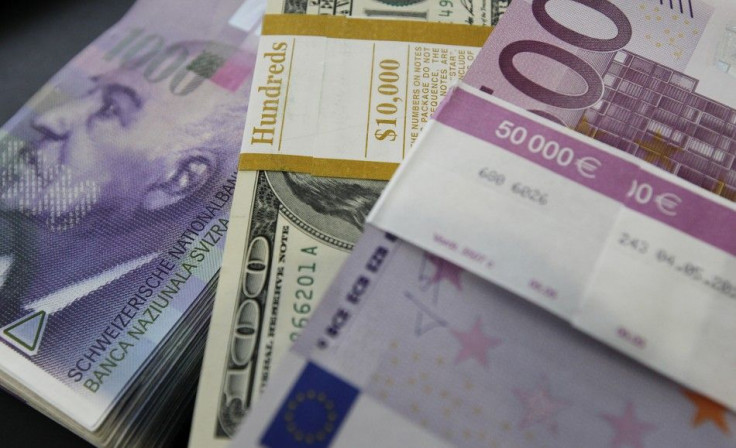Euro Recovers Monday On Technicals, But Greek Exit Shadows Trade

The euro-to-dollar exchange rate recovered Monday from the lows seen late Friday, when the European currency nearly touched multiyear lows. Still, the rise appeared to spring mostly from technical retracements, as a growing belief that Greece would soon be forced to exit the currency union gained momentum.
In late-day trading in New York, the euro sold for $1.2805, a significant jump from Friday's low of $1.2647.
But that recovery appeared to be a result of traders taking some positions off the table after a week that saw the market aggressively bet against the euro. The U.S. Commodity Futures Trading Commission said Friday that speculators' short euro positions had risen to 173,869 contracts, the highest ever observed, with corresponding positive bets on other currencies rising to levels not seen since 2008. Separately, asset manager UBS reported that last week's flows of monies out of euro holdings were the second-largest of 2012.
While those flows reversed somewhat as positions were settled and the euro rose Monday, worries about Greece remained.
A Greek exit will be expensive and messy, but it's probably inevitable, and therefore we should plan for it, Mohamed El-Erian, CEO of Pimco, the largest manager of bond funds, said in an interview on Bloomberg Radio.
UBS estimated a Greek euro exit could trigger as much as €225 billion ($287 billion) in losses.
Traders await several developments, including new elections in Greece. Major firms have forecast the euro trading at levels anywhere from $1.15 to $1.44 by the end of the year, and the implied volatility of at-the-money euro futures expiring a month from now hit a three-month high of 12.15 percent Monday, meaning investors see the euro-to-dollar rate swinging by as much as 15 cents in the next few weeks.
The euro is currently trading at a discount from implied overnight swap prices, which would peg the currency closer to $1.30.
In related foreign exchange market news, investors wondered how much the weakening euro would affect trade in Swiss francs. The drop in the euro caused the common currency to trade at ?1.2013 . The Swiss National Bank has said it will intervene to keep the exchange rate above ?1.20 per euro.
A further slide in the euro would put the SNB in a tight position, several analysts noted Monday.
© Copyright IBTimes 2024. All rights reserved.




















